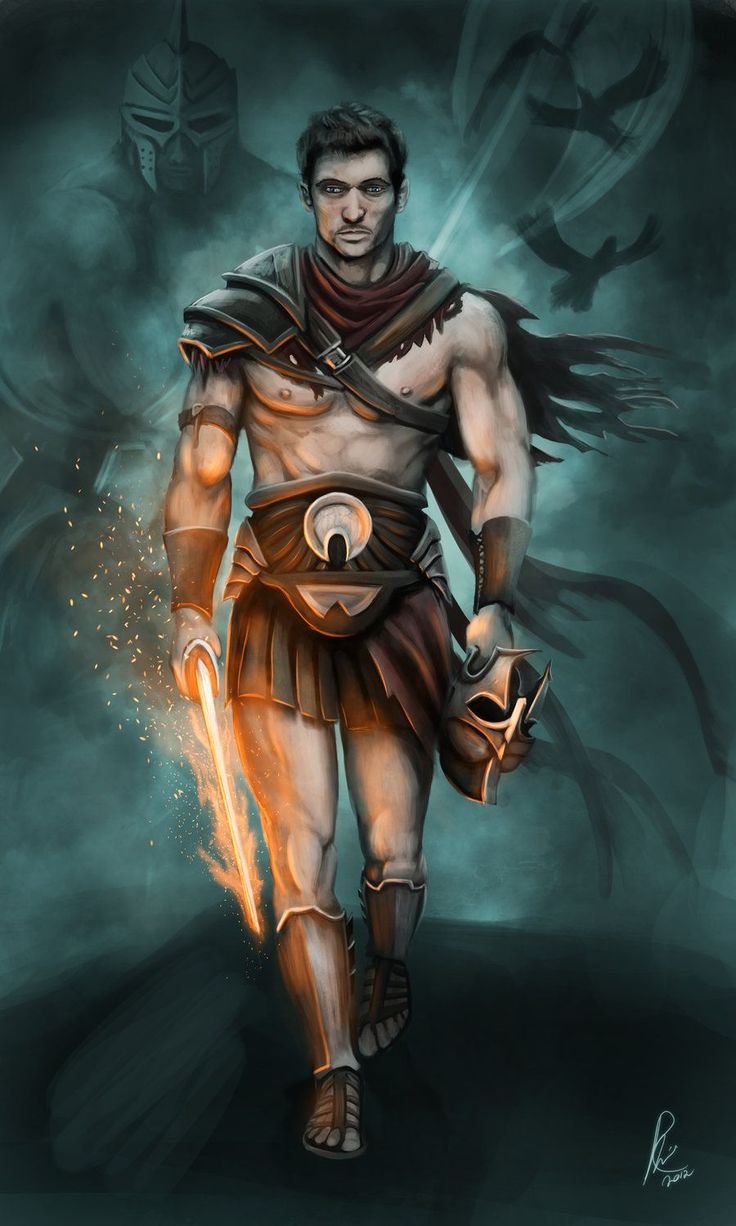
In the rich tapestry of Greek mythology, the Titans occupy a significant place.
Among these primordial beings is Perses, a lesser-known figure often overshadowed by the likes of Zeus, Poseidon, and Hades.
In this article, we’ll delve into the intriguing world of Perses, exploring who he is in Greek mythology, his role and characteristics, his notable descendants, his presence in art and literature, and the various interpretations and symbolism associated with him.
Let’s embark on a journey to uncover the enigmatic persona of Perses.
Who Was Perses in Greek Mythology?
Perses, a lesser-known Titan in Greek mythology, is a fascinating figure with intriguing connections and descendants that contribute to his significance in the ancient Greek pantheon.
Perses was born to Crius and Eurybia, two prominent Titans in Greek mythology.
Crius and Eurybia were known for their respective domains – Crius was associated with heavenly constellations, while Eurybia was a sea goddess, ruling over the mastery of the sea’s power.
Their union gave rise to Perses, adding an interesting blend of celestial and aquatic influences to his character.
While Perses may not be as celebrated or extensively detailed as some of the other Titans in Greek mythology, his connection to Hecate and the realms of magic and sorcery adds depth to his character.
His legacy lives on through his descendants, reminding us that even the lesser-known figures in Greek mythology can hold hidden depths and intriguing connections within this rich tapestry of ancient lore.
- Read also: 10 Fascinating Demeter Goddess Facts
- Read also: Thalia in Greek Mythology
The Role and Characteristics of Perses
Perses, while not extensively detailed in Greek mythology, carries a name that hints at potential roles and characteristics within the ancient Greek pantheon.
The etymology of his name, “Perses,” holds an intriguing significance that invites us to speculate about his possible roles and attributes.
In Greek, “Perses” can indeed be loosely translated to signify “Destroyer” or “Ravager.”
This linguistic connection suggests a role associated with chaos or destruction in the mythology.
While this interpretation is not firmly established in the myths themselves, the meaning of his name may offer clues to his character.
One could speculate that Perses might have been linked to aspects of upheaval, disorder, or transformative forces in Greek mythology.
Such associations are not uncommon among the Titans, who often represented primal and elemental aspects of the world.
Additionally, the obscurity surrounding Perses adds an aura of mystery to his character.
While some Titans, like Cronus or Atlas, have well-defined roles and narratives, Perses remains shrouded in an enigma, leaving room for interpretation and imagination.
The Descendants of Perses
Perses’ significance in Greek mythology becomes more pronounced when we delve into his lineage and the notable descendants he fathered.
While his own mythological narrative may be relatively understated, the stories of his children, Hecate and Asteria, bring a deeper layer of meaning to his character.
Hecate, one of Perses’ daughters, emerges as one of the most prominent figures among his descendants.
She is revered as the goddess of magic, witchcraft, and the night.
Hecate’s influence extended over various aspects of life, particularly her association with crossroads, where paths diverge, making her a guardian of choices and transitions.
Her dominion also extended to the moon, aligning her with lunar energies and the mystique of the night.
Asteria, Perses’ other offspring, assumes the role of the Titaness of oracles and falling stars.
Her mythological significance lies in her association with divination and the celestial realm.
Asteria’s name itself, meaning “starry one,” reflects her connection to the night sky.
She is often depicted as a celestial being, embodying the beauty and mystery of the cosmos.
While her role may not be as prominent as that of her sister Hecate, Asteria’s presence in Greek mythology adds an ethereal and celestial dimension to the pantheon.
Perses in Art and Literature
Perses, a lesser-known Titan in Greek mythology, may not hold a central role in art and literature.
However, his significance lies in his notable descendants, Hecate and Asteria.
Hecate, the goddess of magic and the night has been a prominent figure in art, literature, and ancient rituals due to her associations with mysticism.
Her iconic portrayal as a three-headed goddess symbolizes her dominion over the earth, sea, and sky.
Asteria, the Titaness of oracles and falling stars, adds a celestial dimension to Greek mythology, often depicted in art as a celestial being embodying the beauty of the night sky.
While Perses himself remains relatively obscure, his descendants have left enduring marks on the world of mythology and artistic expression.
Interpretations and Symbolism
The symbolism of Perses in Greek mythology is often linked to the concept of destruction and chaos, primarily due to the meaning of his name.
Some interpretations connect him to the darker forces of nature or the cosmos, portraying him as a figure representing upheaval and disorder.
However, because of the limited information available in Greek mythology, the interpretations of Perses’ symbolism can vary, and his true significance remains open to exploration and debate within the broader context of Greek mythology.
- Read also: Ixion in Greek Mythology
- Read also: Unveiling Pontus in Greek Mythology
Conclusion
Perses, the lesser-known Titan of Greek mythology, may not have a wealth of tales dedicated to his name, but his significance lies in his distinguished descendants, Hecate and Asteria.
Through their stories, Perses indirectly influences various aspects of Greek mythology, art, and literature.
As with many mythological figures, the enigmatic nature of Perses invites interpretation and speculation, reminding us of the enduring allure of ancient myths.
FAQs
Hecate is a goddess associated with magic, witchcraft, and the night. She is often depicted at crossroads, symbolizing her role as a guide through life’s transitions.
Asteria is the Titaness of oracles and falling stars. In mythology, she transformed into a quail to escape the advances of Zeus and later became the island of Delos, a sacred site.
No, there are no prominent myths dedicated solely to Perses. His significance primarily lies in his role as the father of Hecate and Asteria.
Some well-known Titans include Cronus (Kronos), Rhea, Oceanus, Tethys, Hyperion, and Themis, among others. Each Titan contributed to the rich tapestry of Greek mythology.



